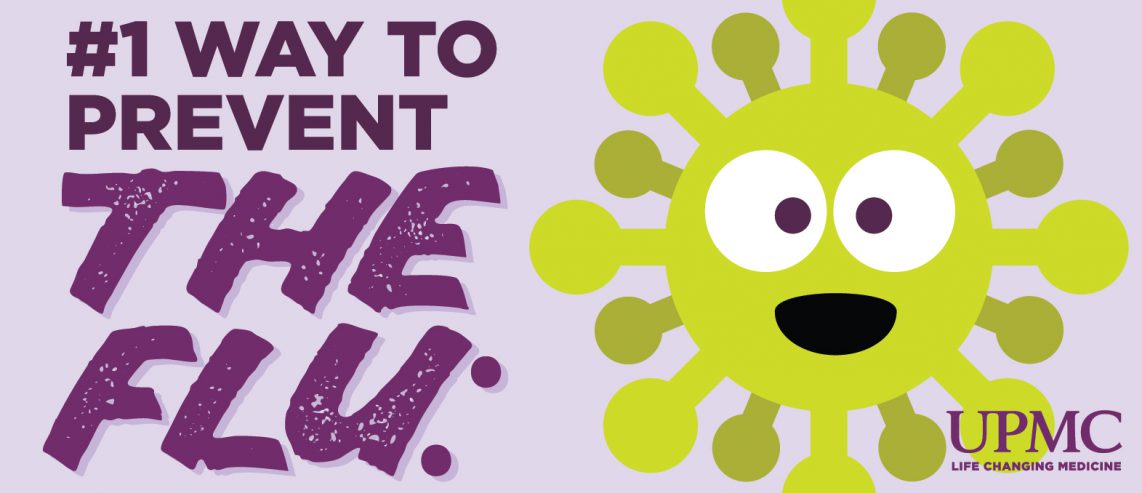Flu season is upon us, and it’s time to start thinking about how to stay flu-free.
Although washing your hands and disinfecting surfaces are helpful, the flu virus is highly contagious and should not be taken lightly.
Flu Complications
According to the CDC, each year an average of 20,000 children under the age of 5 are hospitalized because of complication from the flu. These complications include:
- Pneumonia
- Sinusitis
- Bronchitis
- Ear infections
- Death
How Is the Flu Spread?
The flu is spread through respiratory secretions. For example, when infected people talk, cough, or sneeze, respiratory droplets that contain the virus can potentially be inhaled into the mouths or noses of those nearby.
The virus also can be spread through contact with secretions of an infected person who has touched a doorknob or other object. When you touch that object and then touch your mouth, eyes, or nose, you introduce germs into your own body.
So, what can you do to stay healthy?
When it comes to the flu, the best way to protect yourself is with an annual flu shot, which is recommended for anyone 6 years and older.
What Are My Flu Shot Options?
There are currently two types of vaccinations available. These include:
- Inactivated flu vaccines, which are administered as a shot into the arm.
- Live vaccines, which are administered as a spray through the nose.
Although the needle-free nasal vaccine seems appealing, this form of vaccination has been proven not to be as effective as the flu shot. In addition, it is restricted to healthy, nonpregnant individuals ages 2 through 49.
The Centers for Disease Control (CDC) has a list of people who should not get the nasal form of the flu vaccine.
Can I get the flu from the flu vaccine?
Since the nasal vaccine contains some live virus, many people wonder if it can actually cause the flu. The answer to this question is no.
The weakened viruses contained in the nasal spray are cold-adapted — meaning they can only cause infection at the cooler temperatures found within the nose. The viruses cannot infect the lungs or other areas where warmer temperatures exist.
The shot vaccine contains killed virus and cannot cause the flu.
I got a flu shot last year. Do I need another one?
Many people question why they need to receive the flu vaccine every year.
The influenza virus evolves rapidly and can produce new strains that a previous vaccine may not protect against. Therefore, it is important to receive the newest vaccine annually.
We’re already into flu season. Will a flu shot still help?
Although flu season has already begun, you can benefit from the vaccine even if you get it after the start of the season.
Keep in mind, however, that it takes up to two weeks to build immunity after a flu shot — so the sooner you receive your vaccination, the better.

Visit any UPMC Urgent Care center, seven days a week from 9 a.m. to 9 p.m., to get your shot and decrease the likelihood that you come down with the flu. Find the UPMC Urgent Care center closest to you.
Editor's Note: This gallery was originally published on , and was last reviewed on .
